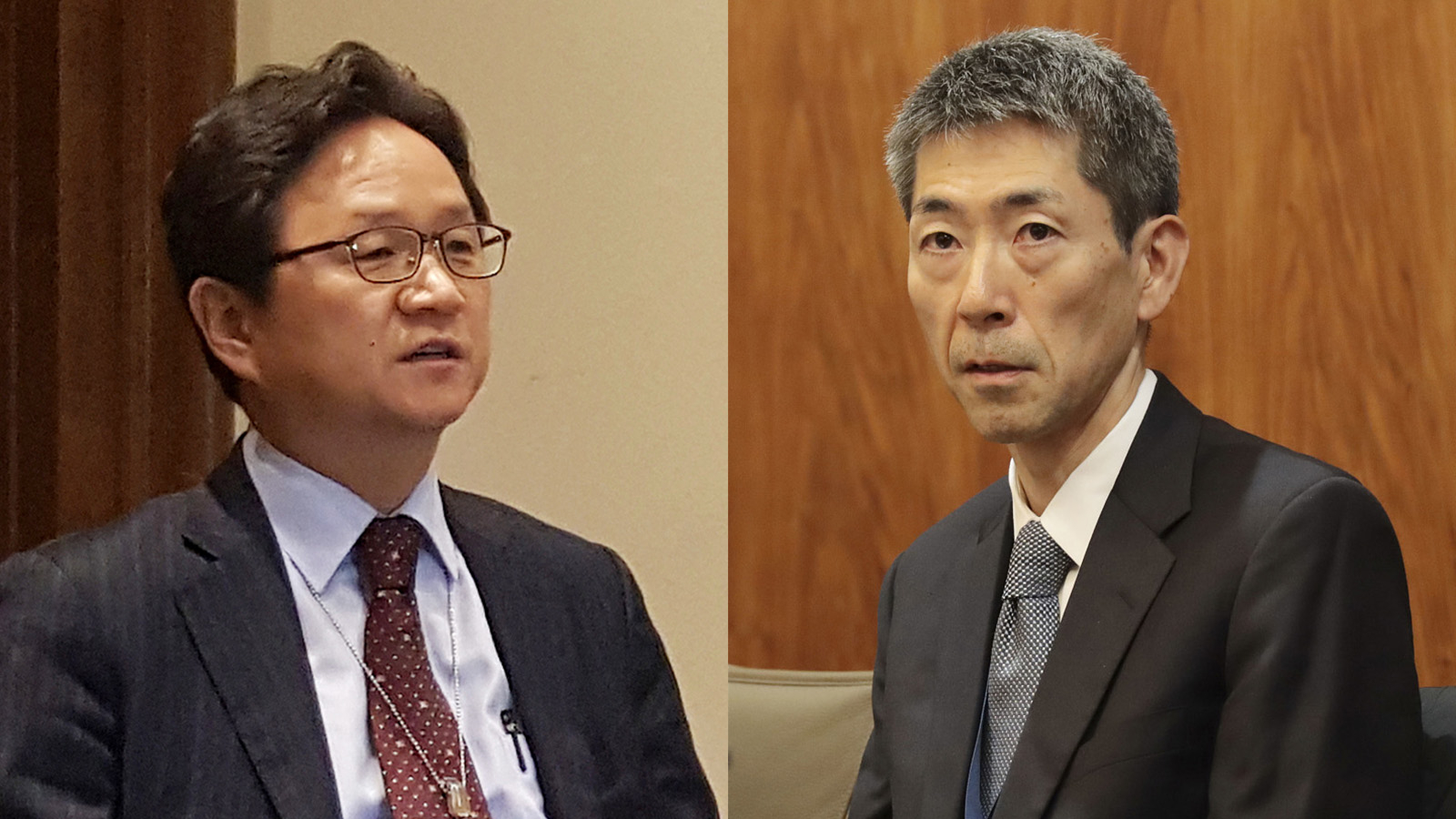
Chung Hae-kwan (L), South Korea's chief negotiator, and Junichiro Kuroda, Japan's senior trade ministry official, attend a press conference at the headquarters of the WTO in Geneva, November 19, 2019. /VCG Photo
Chung Hae-kwan (L), South Korea's chief negotiator, and Junichiro Kuroda, Japan's senior trade ministry official, attend a press conference at the headquarters of the WTO in Geneva, November 19, 2019. /VCG Photo
South Korea and Japan failed to find common ground during their second round of talks in Geneva, Switzerland over the ongoing trade dispute between the two countries, the South Korean Ministry of Trade, Industry and Energy said Wednesday.
The director general-level officials from the two countries held the second meeting in Geneva as part of a dispute settlement process under the rules of the World Trade Organization (WTO). The first meeting, held in October, ended without progress.
During the meeting, South Korea emphasized that Japan's export curbs were an arbitrary, discriminated act violating the WTO rules, urging Japan to immediately drop the export restrictions, the Seoul ministry said.
Chung Hae-kwan, South Korea's chief negotiator, was quoted by Yonhap news agency as saying in Geneva that the two sides seemed not to have changed their respective positions over the issue.
The Seoul ministry said that based on the results of the meeting, it will review various options, including a request to establish a panel at the WTO dispute settlement body.
South Korea filed a complaint with the WTO against Japan on September 11 regarding the country's tighter control in July of its export to South Korea of three materials, vital to produce memory chips and display panels, the mainstay of South Korea's export.
Seoul claimed that Japan's export restrictions came in response to the South Korean top court's rulings that ordered some Japanese companies to pay reparation to the South Korean victims who were forced into hard labor without pay during the 1910-45 Japanese colonization of the Korean Peninsula.
Source(s): Xinhua News Agency